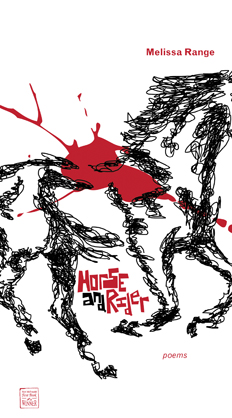
Book Review

|
Horse and Rider This first assertion will be deemed as reductive and myopic, but critics must sometimes risk those labels, particularly when one encounters a book such as Melissa Range’s Horse and Rider. “Good” poetry, in this reviewer’s estimation, must excel in several ways. If a poem is to inhabit a reader’s mind residually, it must achieve a difficult balance of the following: Sound + Sense + Intellect + Heart. It occurs to me that these familiar qualifiers smack of the cliché whittling-down-to-essentials so prevalent in graduate workshops; alas, most published poems do not manage to reflect close consideration of these ideals. Thus, a large swath of contemporary poetry, delighting in the postmodern sensibilities that still inform it, manages, often but not always, to achieve one or two of the aforementioned qualities: Sonically, a poem encountered in any number of top-tier journals might be interesting but lack a perceivable narrative or coherent lyricism. Alternatively, many poems might attempt to massage the intellect while willfully dismissing image and sound. And there are poems that might center on a preoccupation of image—clusters of sensory information without a story to justify them. Finally, one might encounter the still extant strains of American poetry that rely on emotional provocation but lack texture and surprise in diction or image. Very few poets manage to marry all of these together into a work that truly delights and challenges. can exhume a grainy death graying with salt of light. What the shore lacks in luster |
Return to Spring 2011 Table of Contents